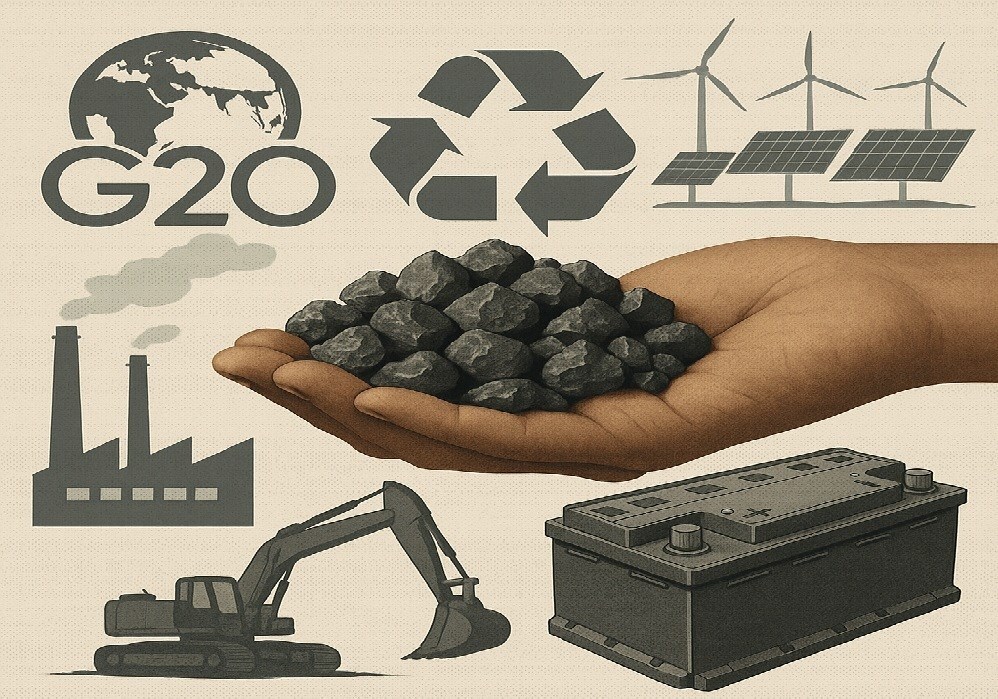您想继续阅读英文文章还
是切换到中文?
是切换到中文?

THINK ALUMINIUM THINK AL CIRCLE

India has used the G20 platform to push for a fresh international effort around critical minerals, an area where Beijing’s dominance has left many economies — India included —highly exposed. At the leaders’ meeting in Johannesburg, Prime Minister Narendra Modi introduced a proposal for a G20 critical minerals circularity initiative, arguing that the clean-energy shift now depends as much on how nations reuse and recover these minerals as on how they extract them. The plan places recycling, urban mining and second-life battery applications at its core, a direction that could ease pressure on global supply lines and reduce the environmental footprint of new mining.

According to Modi, investments in circularity would lessen dependence on newly mined material and help stabilise supply chains. He said the approach could open the door for shared research, aligned technology benchmarks and early-stage recycling projects in the Global South.
Also read: The World of Aluminium Extrusions – Industry Forecast to 2032
The prime minister also warned that countries cannot strengthen their preparedness by working independently. Resilience cannot be built in silos, he said, urging G20 members to link nutrition, public-health systems, sustainable agriculture and disaster readiness into a single policy frame. “The G20 should promote comprehensive strategies that combine nutrition, public health, sustainable agriculture, and disaster preparedness, to create a robust global defence,” he noted.
Modi additionally pitched a G20 open satellite data partnership, a mechanism that would make satellite datasets from G20 agencies more accessible and usable for developing nations.
India’s appeal comes against the backdrop of a rapidly expanding need for minerals such as lithium, cobalt, nickel, graphite and rare earth elements. These are essential for batteries, electronics, clean-energy components, aerospace and defence. Despite having some geological potential, India continues to import nearly all of them, and its demand is expected to more than double by 2030.
What makes the situation more urgent is China’s position at the heart of the global value chain. Beijing controls between 60 per cent and 90 per cent of worldwide refining and processing capacity for many critical minerals, giving it considerable sway over availability and pricing.
New Delhi has been trying to reduce this vulnerability through the National Critical Minerals Mission, partnerships with resource-rich nations and overseas acquisitions. But with domestic exploration still limited, India remains heavily dependent on foreign suppliers—making the push for circularity and diversified access a strategic necessity as the energy transition accelerates.
Also read: Aluminium China: 2025 & Beyond
Responses








